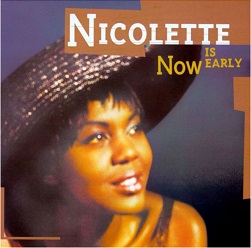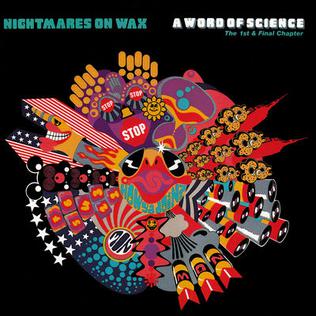
Maggot Brain is the third studio album by the American funk rock band Funkadelic, released by Westbound Records in July 1971. It was produced by bandleader George Clinton and recorded at United Sound Systems in Detroit during late 1970 and early 1971. The album was the final LP recorded by the original Funkadelic lineup; after its release, founding members Tawl Ross (guitar), Billy Nelson (bass), and Tiki Fulwood (drums) left the band for various reasons.

Christopher Edward Martin, known professionally as DJ Premier, is an American DJ and record producer. He is considered one of the greatest hip hop producers of all time. He was half of the hip hop duo Gang Starr—alongside the rapper Guru—and presently forms half of the hip hop duo PRhyme, together with Royce da 5'9".

Cassius was a French musical duo active from 1988 to 2019 and consisting of producers Philippe Cerboneschi and Hubert Blanc-Francard, better known as Zdar and Boombass. Under its different incarnations the duo is likened to the "French touch" movement of electronic music in the second half of the 1990s.

Love Child is the fifteenth studio album released by Diana Ross & the Supremes for the Motown label in 1968. The LP was the group's first studio LP not to include any songs written or produced by any member of the Holland–Dozier–Holland production team, who had previously overseen most of the Supremes' releases.

Shenandoah is an American country music band founded in Muscle Shoals, Alabama, in 1984 by Marty Raybon, Ralph Ezell, Stan Thorn, Jim Seales, and Mike McGuire. Thorn and Ezell left the band in the mid-1990s, with Rocky Thacker taking over on bass guitar; Keyboardist Stan Munsey joined the line up in 1995, until his departure in 2018. The band split up in 1997 after Raybon left. Seales and McGuire reformed the band in 2000 with lead singer Brent Lamb, who was in turn replaced by Curtis Wright and then by Jimmy Yeary. Ezell rejoined in the early 2000s, and after his 2007 death, he was replaced by Mike Folsom. Raybon returned to the band in 2014. That same year, Jamie Michael replaced the retiring Jim Seales on lead guitar.

Jamie Alexander Lidderdale, known professionally as Jamie Lidell, is an English musician, soul singer and podcast host. Lidell was formerly a part of Super Collider. He lives in Nashville, Tennessee, US.

Now Is Early is the debut studio album by Scottish singer Nicolette, produced by English electronic duo Shut Up and Dance and released in April 1992 by the duo's label of the same name. It follows a string of popular underground singles in the early 1990s that applied the singer's jazz-styled vocals to Shut Up and Dance's early experiments in breakbeat hardcore, with songs from these singles featuring on the record. Stylistically, the record profiles Shut Up and Dance's spacious, breakbeat-driven sound, contrasted with Nicolette's smooth scat-style singing. For the album, the singer wrote torch songs in a stream of consciousness style and explored universal themes.
Super_Collider were an English electronic duo consisted of Jamie Lidell and Cristian Vogel, formed in 1998. They released two albums – Head On in 1999, and Raw Digits in 2002.

A Word of Science is the debut studio album by British electronic producers Nightmares on Wax. Released by Warp Records in September 1991, it is the act's only album as a group before it became a solo vehicle for George Evelyn. Evelyn nonetheless recorded and produced the album alone, incorporating samples and elements from demo tapes he made in the late 1980s. Although Nightmares on Wax debuted with two well-received techno singles in 1989-1990, A Word of Science is eclectic and largely moves the act towards a more mellow style influenced by funk, soul and hip hop, while still incorporating techno and house styles.
Cristian Vogel is a Chilean-born experimental electronic musician and producer.

Hearsay is the second solo studio album by American recording artist Alexander O'Neal. It was released on July 29, 1987 by Tabu and Epic as the follow-up to O'Neal's critically and commercially successful studio album Alexander O'Neal (1985). Hearsay explores similar genres to those of Alexander O'Neal including pop, R&B, soul, post-disco, funk, and adult contemporary music, while also incorporating a newer genre, new jack swing. The songs were recorded from 1986 to 1987 in sessions that took place at Flyte Time Productions, Inc. Studio A & B in Minneapolis, Minnesota, assisted by R&B songwriting and record production team Jimmy Jam and Terry Lewis. It features contributions from guest musicians, including Cherrelle, David Eiland, and Lisa Keith, and is generally regarded as the culmination of the smoother, more adult-oriented sound of O'Neal's early work.

"The Greatest Hit" is a song by Norwegian singer Annie. It was written and produced by Annie and DJ Tore "Erot" Kroknes. The song samples Madonna's 1982 debut single "Everybody", and she received a co-writing credit. The track was released as a limited edition 7-inch single in 1999. It became an underground club hit in Norway and the United Kingdom. Retitled "Greatest Hit", the song was later included on Annie's debut album, Anniemal (2004).
James Edward Gadson is an American drummer and session musician. Beginning his career in the late 1960s, Gadson has since become one of the most-recorded drummers in the history of R&B. He is also a singer and songwriter.

On the Floor at the Boutique – Volume 2 is a DJ mix by the Lo Fidelity Allstars released as a compilation album in 2000. It was recorded at the Big Beat Boutique in 1999 in Brighton, England.

Jamie Lidell is an album by Jamie Lidell released in 2013 and produced by Lidell and Justin Stanley in Lidell's Nashville, Tennessee studio. The lead single, "What a Shame," was released on YouTube on Nov 16, 2012.

The Mechanical Forces of Love is the fourth album by American rock band Medicine, released on July 15, 2003 by Wall of Sound.

Paul Bonomo, better known as Snax, is an American musician, singer, songwriter, producer, performer and DJ from the Washington, D.C. area. He is currently based in Berlin, Germany.

Virgo is the eponymous debut studio album by American house music duo Virgo Four, released in 1989 on Radical Records in the United Kingdom. It compiles two 12" EPs released in the United States on Trax Records, Do You Know Who You Are? by Virgo Four and Ride by M.E.. Both were pseudonyms of Eric Lewis and Merwyn Sanders, two art students and childhood friends from Chicago. The album was first reissued in 2010 on Rush Hour Recordings.

Mura Masa is the debut studio album by Guernsey-born music producer Alex Crossan, under his alias Mura Masa. It was released on 14 July 2017 by Polydor, Interscope, Downtown and Anchor Point Records. The album was produced and recorded by Crossan from 2014 to 2016, and has guest features by A. K. Paul, ASAP Rocky, Bonzai, Charli XCX, Christine and the Queens, Damon Albarn, Desiigner, Jamie Lidell, NAO and Tom Tripp. It received nominations for Best Dance/Electronic Album and Best Recording Package at the 60th Annual Grammy Awards.

Intuition is the debut album by Britfunk band Linx, released in March 1981 on Chrysalis Records. Produced by David Grant, Peter Martin and Bob Carter of the group, the record followed the popular success of their UK hit single "You're Lying", which features on the album, and incorporates styles beyond funk music, such as rock, jazz and soul. Linx preferred to think of their style as simply pop music.


















